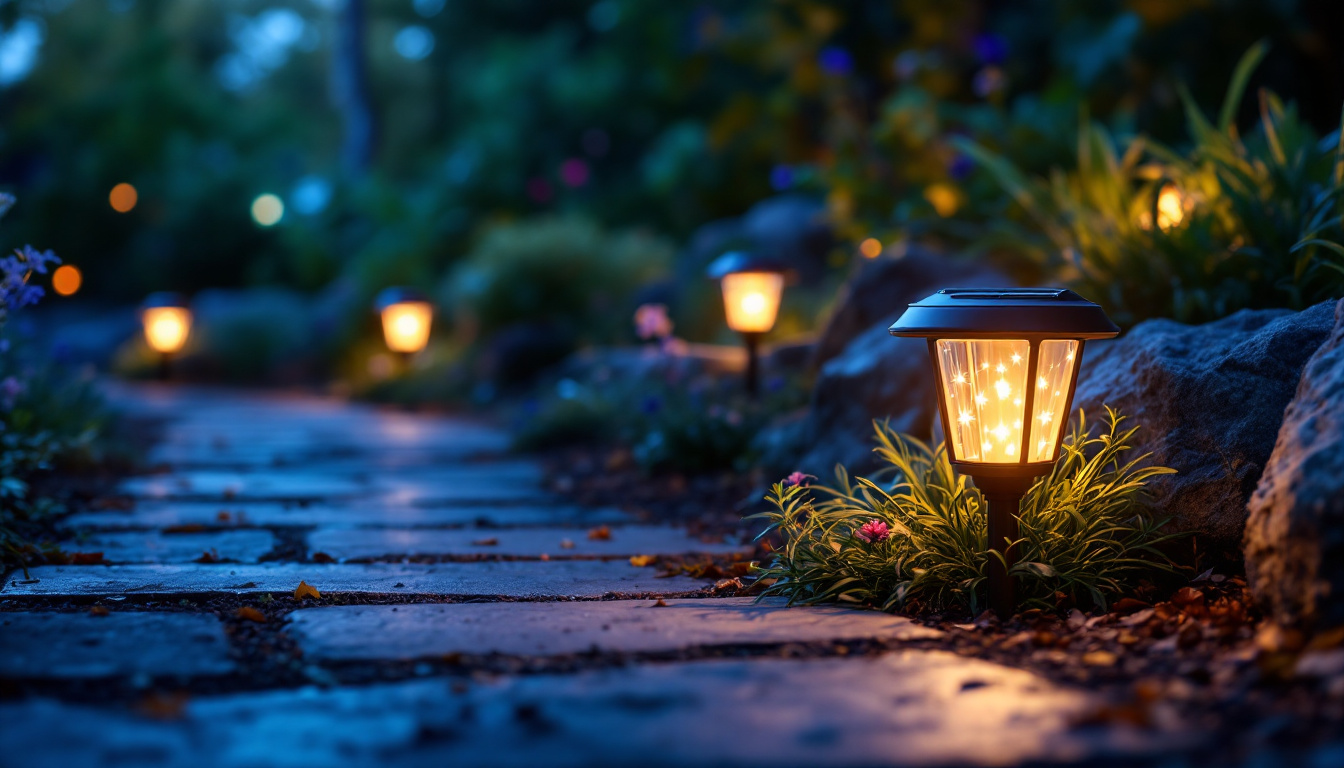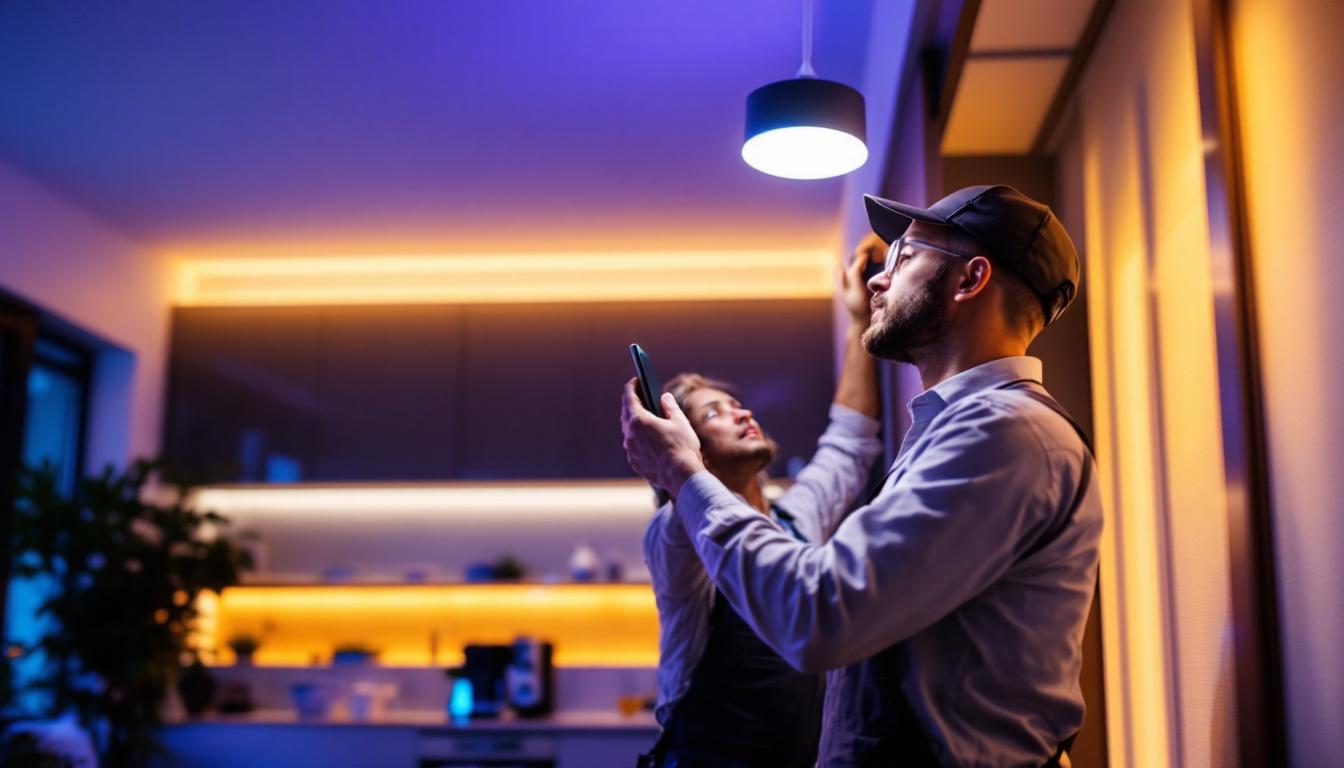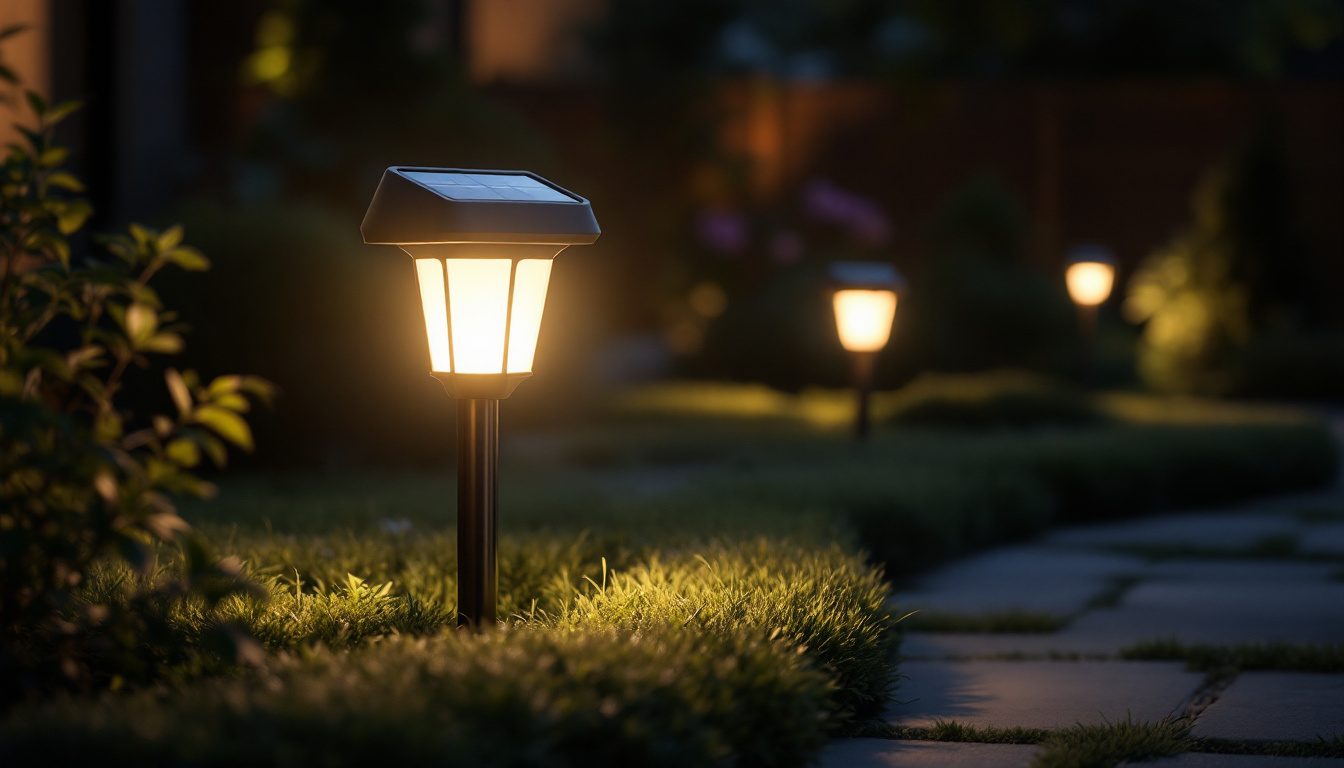
As the demand for sustainable and energy-efficient solutions continues to rise, solar lighting has emerged as a viable option for both residential and commercial applications. Night solar lights, in particular, offer a unique blend of functionality and aesthetic appeal. For lighting contractors looking to expand their offerings, understanding the intricacies of night solar lights is crucial. This article explores key points that contractors should consider when integrating these innovative lighting solutions into their projects.
Night solar lights are outdoor lighting fixtures that harness solar energy to illuminate spaces after dark. They typically consist of a solar panel, LED light source, battery storage, and a light sensor. During the day, the solar panel absorbs sunlight and converts it into electricity, which is stored in the battery. When night falls, the light sensor detects the absence of natural light, triggering the LED lights to turn on.
This self-sustaining mechanism not only reduces energy costs but also minimizes the environmental impact associated with traditional lighting systems. Night solar lights are available in various styles and designs, making them suitable for a wide range of applications, from pathway lighting to decorative garden fixtures. Their versatility allows homeowners to enhance the aesthetic appeal of their outdoor spaces while providing practical illumination. Some models even come with adjustable brightness settings or color-changing features, allowing for personalized ambiance in gardens, patios, or decks.
One of the most significant advantages of night solar lights is their energy efficiency. By utilizing renewable solar energy, these lights reduce reliance on grid electricity, leading to lower energy bills. Additionally, they require minimal maintenance, as they do not have complex wiring or electrical components that are prone to wear and tear. This durability is particularly beneficial in areas with harsh weather conditions, where traditional lighting might suffer from corrosion or electrical failures.
Another benefit is their ease of installation. Without the need for electrical wiring, contractors can install solar lights quickly and efficiently, reducing labor costs and project timelines. This is particularly advantageous for contractors working in remote areas where access to electrical infrastructure may be limited. Furthermore, many night solar lights are designed to be portable, allowing users to reposition them as needed to adapt to changing outdoor layouts or seasonal landscaping. This flexibility not only enhances their functionality but also encourages creative lighting solutions that can transform a mundane outdoor space into an inviting and well-lit environment.
Before recommending or installing night solar lights, a thorough site assessment is essential. Contractors should evaluate the location to determine the amount of sunlight it receives throughout the day. Areas with significant shade from trees, buildings, or other structures may not provide sufficient solar energy for optimal performance.
In addition to sunlight exposure, contractors should consider the intended purpose of the lighting. For instance, pathway lights may require a different lumen output compared to security lights. Understanding the specific needs of the project will help in selecting the appropriate solar lights and ensuring customer satisfaction. Furthermore, it’s crucial to assess the local climate conditions, as regions with frequent rain or snow may necessitate more robust and weather-resistant lighting solutions. This comprehensive evaluation not only ensures functionality but also helps in anticipating potential maintenance issues that could arise due to environmental factors.
With a plethora of night solar light options available on the market, selecting the right products can be overwhelming. Contractors should prioritize quality and performance by looking for lights with durable materials, high-efficiency solar panels, and reliable battery systems. It is also advisable to check for warranties and certifications, as these can indicate the manufacturer’s confidence in their product.
Moreover, considering the aesthetic aspect is equally important. Night solar lights come in various designs, colors, and finishes, allowing contractors to match the lighting with the overall style of the property. This attention to detail can significantly enhance the appeal of the installation. Additionally, contractors should keep in mind the latest trends in outdoor lighting, such as smart technology integration, which allows for remote control and scheduling of lighting. This not only adds convenience for the homeowner but also provides an opportunity for contractors to offer cutting-edge solutions that can set their services apart from competitors. By staying informed about advancements in solar technology, contractors can ensure they are providing the best possible options for their clients while also promoting energy efficiency and sustainability.
The placement of night solar lights plays a critical role in their effectiveness. Contractors should aim to position the lights where they can receive maximum sunlight exposure during the day. This often means avoiding shaded areas and ensuring that the solar panels are angled correctly to capture sunlight. Factors such as the surrounding landscape, nearby structures, and seasonal changes in sunlight can all influence the optimal placement of solar lights.
Additionally, the height and orientation of the lights should be considered. For pathway lighting, lights should be low enough to illuminate the ground without causing glare. In contrast, security lights may need to be mounted higher to provide broader coverage. Proper placement not only enhances functionality but also contributes to the overall aesthetic of the landscape. For instance, placing lights near garden features or along walkways can create a welcoming ambiance, while strategically positioning them around entry points can enhance safety and security. Furthermore, using a mix of lighting styles and intensities can add depth and interest to outdoor spaces, making them more inviting during the evening hours.
While night solar lights require less maintenance than traditional lighting systems, they still need regular upkeep to ensure optimal performance. Contractors should advise clients on the importance of keeping solar panels clean and free from debris, as dirt and dust can significantly reduce their efficiency. Regularly scheduled cleanings, especially after storms or high winds, can help maintain the solar panels’ ability to absorb sunlight effectively.
Additionally, periodic checks on the battery and LED components are essential. Over time, batteries may lose their ability to hold a charge, necessitating replacement. Educating clients about these maintenance tasks can help prolong the lifespan of the solar lights and enhance their overall satisfaction with the installation. It’s also beneficial to inform clients about the potential for seasonal adjustments; for example, during winter months, when daylight hours are shorter, they may need to monitor their solar lights more frequently to ensure they are functioning properly. Moreover, advising clients to store solar lights indoors during extreme weather conditions can prevent damage and extend their operational life, ensuring that their outdoor spaces remain beautifully illuminated year-round.
One common concern regarding night solar lights is their performance during inclement weather. While solar lights are designed to operate in various conditions, heavy rain, snow, or prolonged cloudy days can impact their ability to charge effectively. Contractors should reassure clients that many modern solar lights are equipped with advanced battery technology that allows them to function even in less-than-ideal conditions.
Furthermore, selecting products with weather-resistant features can enhance durability and performance. Contractors should recommend lights with high IP ratings, indicating their resistance to water and dust, ensuring they can withstand the elements.
While the initial investment in night solar lights may be higher than traditional lighting options, the long-term savings on energy costs and maintenance can make them a more economical choice. Contractors should provide clients with a comprehensive cost analysis that outlines potential savings over time, highlighting the benefits of solar lighting as a sustainable solution.
Additionally, many local governments and organizations offer incentives for solar energy installations, which can further offset costs. Contractors should stay informed about available rebates and tax credits to help clients maximize their investment.
The future of night solar lights is poised for exciting advancements, particularly with the integration of smart technology. Many manufacturers are now developing solar lights that can be controlled via smartphone apps, allowing users to adjust brightness levels, set timers, and monitor energy consumption.
This smart technology not only enhances user convenience but also improves energy efficiency by allowing for more precise control over lighting. Contractors should stay updated on these trends to offer clients the latest innovations in solar lighting solutions.
As the solar lighting market continues to grow, manufacturers are focusing on aesthetics and customization options. This includes a wider range of designs, colors, and finishes that cater to diverse architectural styles and personal preferences. Contractors can leverage this trend by offering clients tailored solutions that enhance the overall look of their properties.
Moreover, customizable features such as adjustable brightness and color temperature can provide additional versatility, making solar lights suitable for various applications, from festive outdoor gatherings to serene garden settings.
Night solar lights present a compelling opportunity for lighting contractors looking to expand their service offerings. By understanding the technology, benefits, and best practices associated with these innovative lighting solutions, contractors can provide clients with sustainable, efficient, and aesthetically pleasing options.
From conducting thorough site assessments to staying informed about industry trends, contractors who embrace night solar lights can position themselves as leaders in the evolving landscape of outdoor lighting. As the demand for energy-efficient solutions continues to grow, the expertise in solar lighting will undoubtedly become a valuable asset in the contractor’s toolkit.
Ready to take your lighting projects to the next level with sustainable and efficient night solar lights? At LumenWholesale, we provide lighting contractors like you with the highest quality, spec-grade lighting products at unbeatable wholesale prices. Say goodbye to inflated markups and hello to a vast selection of reliable, high-performance lighting that meets the highest industry standards. Plus, with free shipping on bulk orders, you can stock up on premium lighting solutions without worrying about hidden fees or compromises. Elevate your outdoor lighting offerings and give your clients the best value by choosing Wholesale Lighting at the Best Value with LumenWholesale.

Discover the essential facts about A19 bulb sizes that every lighting contractor needs to know.

Discover essential tips and insights for lighting contractors on effectively utilizing Uvo Light technology.

Discover essential tips for lighting contractors to maximize the efficiency of LED solar power dusk-to-dawn spotlights.

Discover why staying informed about the cost of LED light bulbs is crucial for lighting contractors.